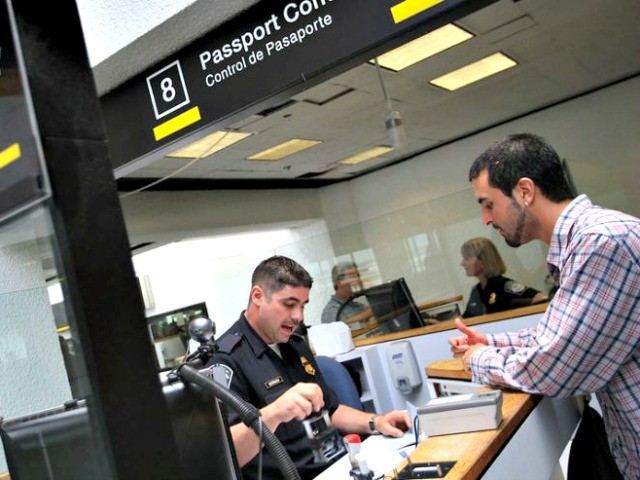Newly revealed polling conducted by Premier Doug Ford’s government shows growing public dissatisfaction with its handling of COVID-19 last year as successive waves of the pandemic hit Ontario.CBC News obtained 35 weekly polling reports from 2021, assessing public opinion on a wide range of issues related to COVID-19, including public health restrictions, vaccine passports and mandatory vaccination requirements.The polling was commissioned by the provincial cabinet office, paid for with public funds and conducted by the Strategic Counsel, a Toronto-based consulting firm.The overall trends in the results suggest that with each successive wave of the pandemic, support for the government sagged.That could be cause for concern for Ford and his Progressive Conservatives with Ontario struggling through yet another wave of COVID-19, this time driven by the Omicron variant, and election day less than five months away.The polling reports show public dissatisfaction peaking in late April and early May, with 51 per cent of respondents saying the government was doing a “poor” or “very poor” job of handling the third wave of the pandemic, and just 19 per cent describing it as a “good” or “excellent” job.Each week pollsters also asked a broader question of whether the government was “on the right track or the wrong track, in terms of how it is governing the province?” Throughout 2020, the government’s “wrong track” numbers hovered down in the 20 to 25 per cent range.But that began changing in early 2021, as the second wave peaked and kept worsening until late April.
Just after the third wave peaked, 52 per cent of respondents said the government was on the wrong track.From May until the most recent poll in mid-September, the government’s “right track” approval rating recovered somewhat, but had not returned to the levels seen before the third wave.The pollsters broke down the “wrong track” scores among a range of demographics, including age, gender, region, income level and whether people were born in Canada or elsewhere.As seen in the slide above, the trends suggest parents have been more likely than non-parents to say the government is on the wrong track.
Likewise, people living in Toronto have been generally more likely than people living in the outlying 905 region to say the government is on the wrong track.On the other hand, the trends suggest that people born outside of Canada and those who the pollsters define as “minority” have been less likely to say the government was on the wrong track than those born in Canada or the “non-minority” population.
The government’s polling found strong support for vaccine mandates, including in schools.Polls in the summer found 70 per cent of respondents saying that eligible elementary and high school students returning to in-class learning should be required to be fully vaccinated.The government has not made the COVID-19 vaccines mandatory for school attendance, although Ontario’s public health rules already require that students prove they are vaccinated against a range of other communicable diseases, such as polio and measles, unless they obtain an exemption.There was an almost equally high level of support for mandatory vaccinations at workplaces, with two-thirds of respondents agreeing with the statement: “To return to a workplace everyone should have to prove they are fully vaccinated.” Other notable findings in the polls: Last winter, the polling looked into public confidence in COVID-19 modelling.The respondents were asked if they agree or disagree with the statement: “I don’t believe as many people will become ill with COVID-19 as the new public health projections say.” In their Feb.12 analysis of the results, the polling firm wrote: “A plurality of Ontarians believe the public health projections on COVID-19 infections, but the believability in the modelling continues to decline.” As previously reported by CBC News, the government commissioned the Strategic Counsel to provide weekly tracking polls throughout the pandemic.Provincial financial records show that the Cabinet Office paid the polling company $683,845 in fiscal year 2020-21.
CBC News requested the latest polling reports in September under Ontario’s freedom of information laws.The government denied the request, on the grounds that the documents would be made public within 90 days.In mid-December, after Queen’s Park had adjourned for its winter break, the government tabled the documents at the Legislature precisely 90 days after CBC’s initial request.
Asked how the government uses the polls in making decisions about its COVID-19 response, Ford’s director of media relations Ivana Yelich said in an email: “Polling is a common tool that all governments use to get a better understanding of the public’s opinion on important policy issues facing the province.” The government’s polling has not only been about COVID-19.At various times, the pollsters asked about economic and environmental issues.The latest poll showed only 12 per cent of respondents giving the government a positive rating on “making life more affordable.” It’s the lowest score the pollsters found on the question since the summer of 2019.In three polls in August, respondents were asked several questions about lowering carbon emissions, including whether government or business should take the lead.
On average, 64 per cent said government, 23 per cent said business, and nine per cent said both.The polling was commissioned by the Ontario cabinet office and conducted by the Strategic Counsel.
The polling firm reported that its polls reached 1,200 respondents monthly by telephone, randomly and proportionately selected from across Ontario, using mobiles (60 per cent) and landlines (40 per cent).The monthly results have a margin of error of ± 2.7 percentage points, 19 times out of 20.
The results were reported to the government weekly, broken down into rolling samples of 300 respondents each week.The sample size for some of the individual questions varied from week to week..
